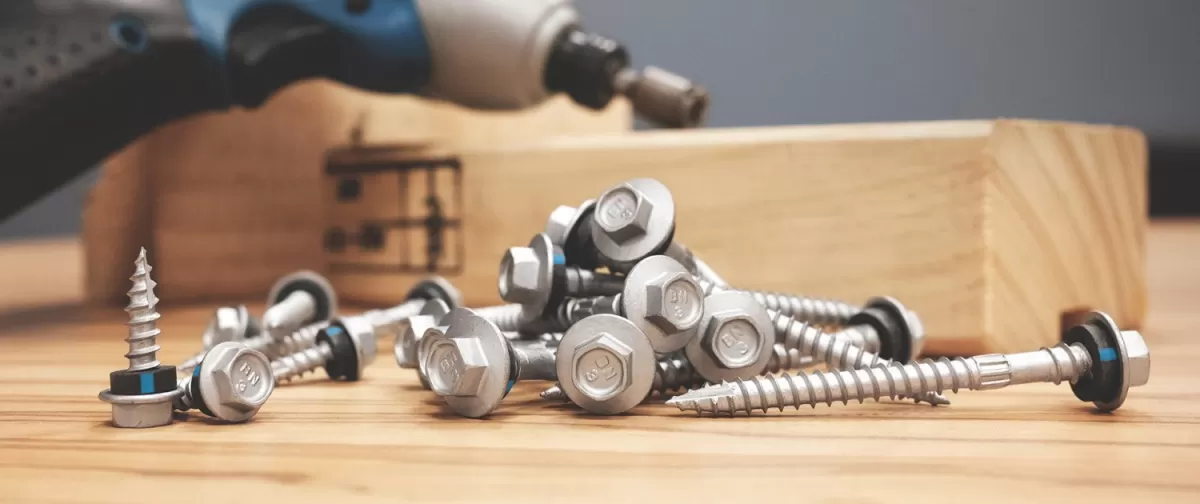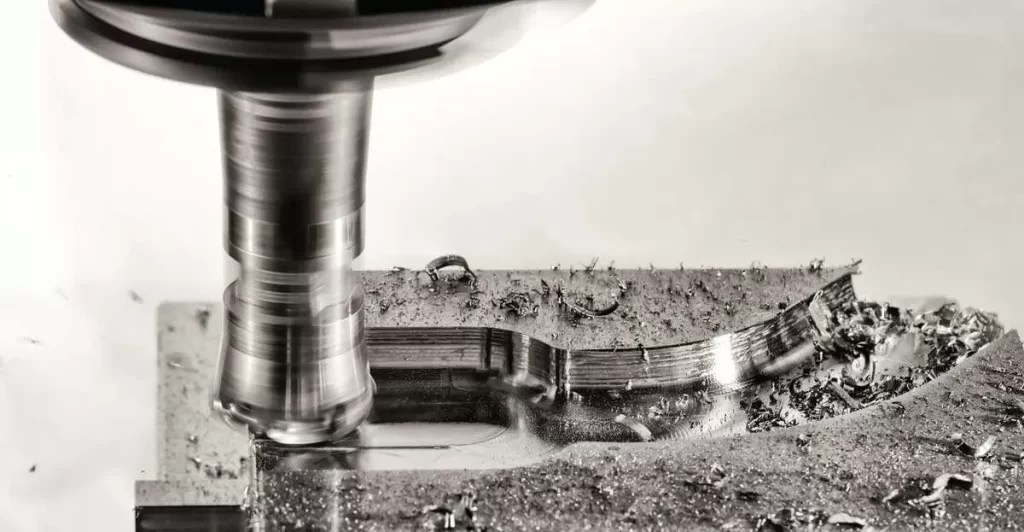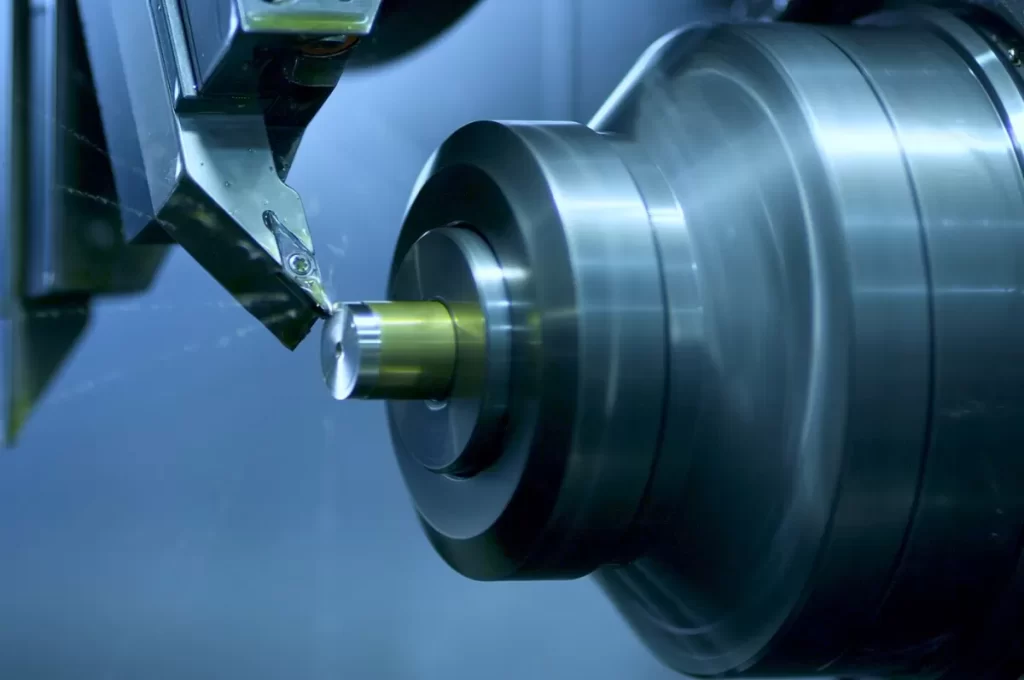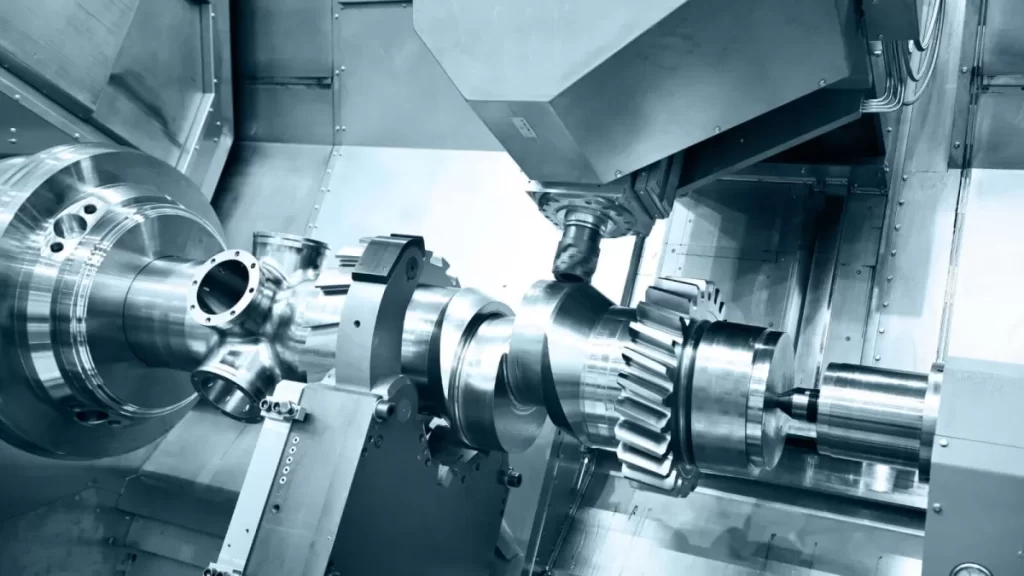What Are Tapping and Drilling Screws
Tapping Screws
Tapping screws are designed to create threads inside a pre-drilled pilot hole. They don’t cut new holes but form threads by shaping or cutting the material inside that hole. There are three main types:
- Thread-forming screws that press material to form threads
- Thread-cutting screws that remove material to create threads
- Thread-rolling screws which roll the material without cutting
Common materials for tapping screws include stainless steel and zinc-plated steel, which offer good corrosion resistance and durability.
Drilling Screws (Self-Drilling Screws)
Drilling screws, often called self-drilling screws or Tek screws, come with a built-in drill-bit tip. This lets them drill their own hole and tap threads in one smooth motion without any pilot hole needed. They come with different drill points, numbered #1 to #5, to match a variety of material thicknesses.
Visual Identification
You can tell these screws apart just by looking:
- Tapping screws usually have sharp, tapered, or sometimes blunt tips and always need a pilot hole.
- Drilling screws have a drill-bit-like tip with a flute for chip removal, designed to bore straight into metal or other hard surfaces.
Key Differences Between Tapping and Drilling Screws
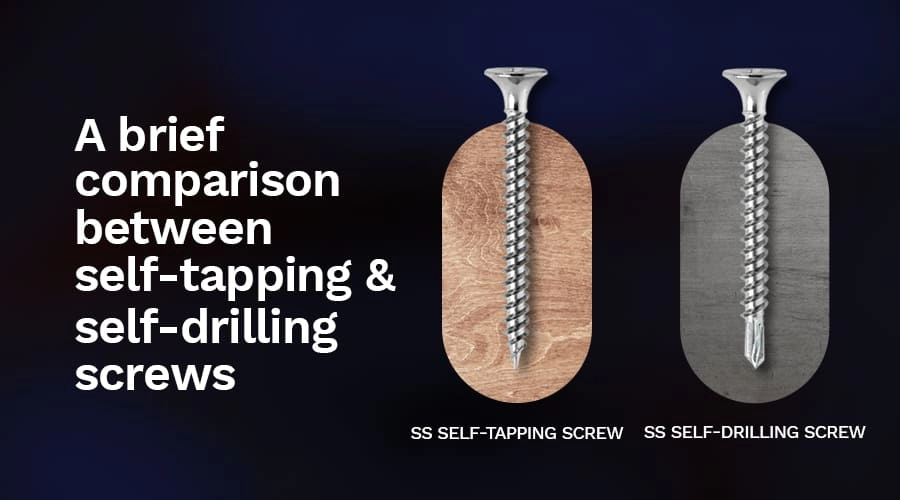
Installation Process
- Tapping screws need a pre-drilled pilot hole. This makes installation slower but more precise.
- Drilling screws don’t require a pilot hole since they drill and tap threads in one go, speeding up installation.
Material Compatibility
- Tapping screws work best with softer materials like wood, plastic, and thin metals such as aluminum.
- Drilling screws are designed for tougher materials like steel and thicker metals, handling harder surfaces with ease.
Strength and Durability
- Tapping screws create precise threads that offer strong, reusable connections, making them great for projects where you might remove and reattach screws.
- Drilling screws provide robust, permanent joins but can damage threads if reused multiple times.
Cost and Efficiency
- Tapping screws typically have a lower unit cost, but the need for pre-drilling means higher labor time.
- Drilling screws cost more per screw but save time and reduce the need for extra tools, boosting overall efficiency.
CNC Applications
- Tapping screws are perfect for CNC-machined parts that require exact threading and tight tolerances.
- Drilling screws are ideal for quick assembly in CNC-fabricated metal components where speed is key.
Applications in CNC Machining and Beyond

CNC Machining
Tapping screws are the go-to choice when working with pre-drilled, high-precision parts like aluminum or plastic components. They create clean, exact threads, which is crucial for CNC-machined pieces that require tight tolerances. On the other hand, drilling screws shine in metal-based CNC projects where speed matters—they drill and tap in one shot, making assembly faster without compromising strength.
Construction and Metalworking
In construction, drilling screws are widely used for roofing, cladding, and steel framing thanks to their ability to handle thicker, harder materials without needing pilot holes. Tapping screws, meanwhile, are better suited for fastening brackets or fixtures to wood or plastic, where pre-drilled pilot holes help ensure a secure fit and prevent splitting.
DIY Projects
For everyday DIY work, tapping screws work best with furniture assembly or when dealing with softer materials like wood and plastic. They provide strong, reusable connections. Drilling screws offer a quick solution for fixes involving metal or mixed materials, saving time by eliminating the need to drill pilot holes upfront.
How to Choose the Right Screw for Your Project
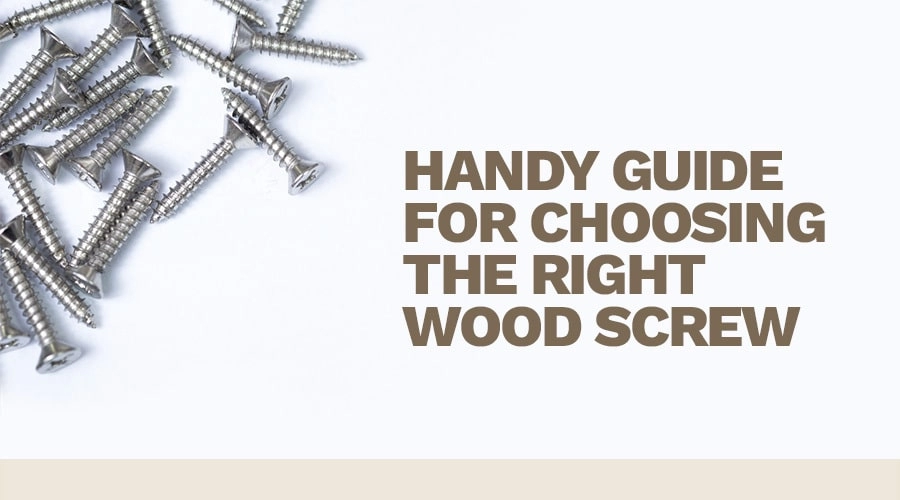
Consider the Material
- For soft materials like wood and plastic, tapping screws work best because they create strong threads in pre-drilled pilot holes.
- Harder materials such as steel call for drilling screws (self-drilling screws). They drill and tap in one go, making installation more efficient.
Project Requirements
- If your project needs permanent joints or quick assembly, drilling screws are ideal for speed.
- For removable or reusable connections, tapping screws give you more control and precision.
- Precision is key in CNC machining parts—tapping screws provide the accurate threading you need.
Budget and Time Constraints
- Tapping screws usually cost less per unit but take more time due to the required pilot holes.
- Drilling screws have a higher upfront cost but save time and reduce labor since you skip pre-drilling.
HYCNC’s Recommendations
- For CNC-machined parts needing exact threading and clean finishes, choose tapping screws.
- For high-volume or time-sensitive projects, drilling screws are the go-to fastener for faster assembly and efficiency.
Choosing the right screw depends on your material, project goals, budget, and timeline. At HYCNC, we help match the fastener to your specific needs for smooth, reliable results.
Installation Tips for Optimal Performance
Tapping Screws
- Choose the right pilot hole size: Too small risks stripping the material; too large leads to weak threads or cracking.
- Use a power drill or screwdriver with controlled torque: This helps avoid overdriving the screw, which can damage threads or the workpiece.
Drilling Screws
- Make sure the material is softer than the screw tip: Harder materials can dull the drill bit tip quickly, reducing effectiveness.
- Avoid over-tightening: Too much torque can strip the formed threads or break the screw, so tighten firmly but carefully.
CNC-Specific Tips
- Trust HYCNC’s precision-drilled pilot holes for tapping screws: Utilizing CNC-machined holes ensures accurate thread formation and consistency.
- Use drilling screws for faster prototyping and assembly: Their self-drilling feature speeds up production without the need for extra tooling.
For more on drilling and boring processes in CNC machining, check out CNC Drilling vs CNC Boring to better understand how pilot holes fit into the workflow.
Why Choose HYCNC for Your Fastener Needs
At HYCNC, we specialize in CNC machining services that include creating custom pilot holes and precision components tailored to your project. With our deep knowledge of fasteners, we can recommend the right screws—whether tapping screws or self-drilling screws—based on your materials and specific needs.
We only offer high-quality, durable screws built to meet the tight tolerances required in CNC machining. This means you get the best fit, strength, and reliability every time.
Need help with bulk fastener orders or custom solutions? Reach out to HYCNC for expert advice and service designed to make your projects run smoother and more efficiently.

